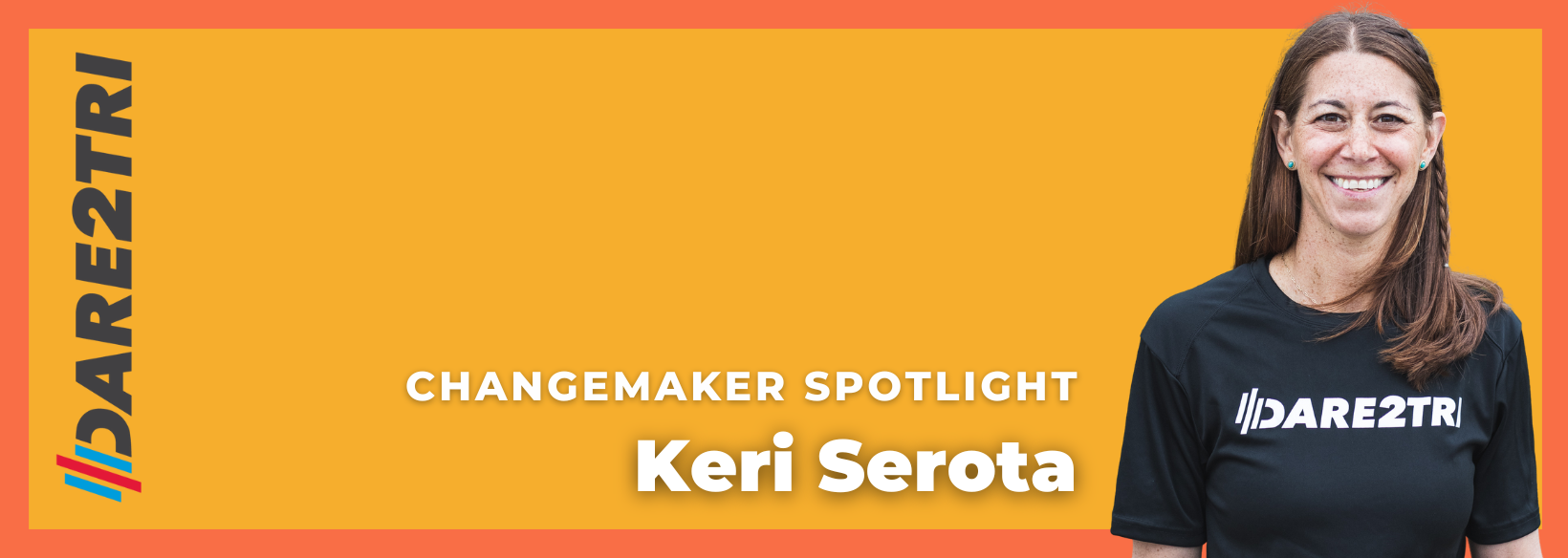
Changemaker Spotlight Series – Keri Serota, Dare2tri
Welcome to Strat Labs’ Changemaker Spotlight Series! This blog series is dedicated to showcasing the inspiring journeys of remarkable individuals who have transformed their passions into purposeful endeavors, leaving a significant impact on the world around them every single day. Join us as we delve into the heart of innovation and commitment, celebrating the extraordinary stories of those who are not just dreaming of a better future but actively shaping it in their journey as a changemaker.
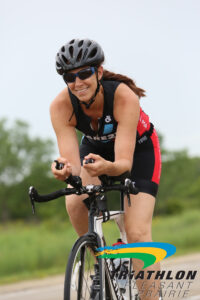
Keri is dedicated to growing the sport of paratriathlon across the country. She has a passion for adaptive sports and her enthusiasm for supporting athletes of all ages, ability, and experience level is unmatched.
What inspired you to embark on your journey in the social impact space?
When I was only 12 years old, I told my dad that when I grew up, I wanted to teach people without legs how to water ski. His first thought was, ‘That’s not a real job. Nobody’s going to pay you to do that.’ Then, all of my summer jobs growing up were working at camps for kids with disabilities. Those camps were more focused on individuals with cognitive impairments because that was more prevalent, but I always knew I wanted to work with those with physical disabilities.
When it came time to go to college, my parents suggested physical therapy or occupational therapy because those are a little more mainstream, but that was not what I wanted to do. To compromise, I decided to go to Indiana University, study Kinesiology, and graduate with a Physical Education Teaching Degree.
My senior year of college coincided with the 2002 Paralympics in Salt Lake City. I petitioned the department and asked if I could get an internship at the Paralympics to count towards student teaching. My advisor thought I was crazy, but I applied and got it. I moved to Salt Lake City for six weeks my senior year, and I worked the games.
From there, I knew that adaptive sports was something that I wanted to pursue, and I worked for other nonprofits, both big and small, before founding my own.
Can you describe how you and/or your organization are making a significant social impact?
Adaptive sports have always been around for people with disabilities to live healthy, active lives, but when I came into the space 15-20 years ago, it was focused on team sports. For example, there was wheelchair basketball or sled hockey, but you needed nine other friends in wheelchairs in order to play a game.
My best friend and one of the Co-Founders of Dare2tri, Melissa Stockwell, is missing her left leg above the knee, and we used to go to 5Ks, bike rides, marathons, triathlons, and other events together with all of our non-disabled peers. I then met Dan Tun, another Co-Founder of Dare2tri, who was also in the adaptive sports world and was a triathlete. The three of us asked ourselves, ‘How do we bring the active lifestyle that we love to people with disabilities who may not have access to or want to be part of a team sport?’
That was where the idea for Dare2tri came from. Today, we’re serving kids, adults, and injured veterans who have a wide range of goals. These range from simply wanting to get active or learn how to swim after becoming visually impaired to dreaming of competing at the national or international level, and everything in between.
What we’re doing is providing them opportunities to reach their goals, removing the barriers that exist, and building a supportive community of people that can help them.
Can you tell us about a project or initiative you’re particularly proud of and its impact on the community or issue it addresses?
The Road2Ride program has been a dream for a long time. Although we talk about access and breaking down barriers by providing the equipment, but we weren’t as aware of social boundaries. There are people who, whether they live in Chicago or different parts of the city, don’t necessarily leave their communities for a wide range of reasons.
We could put together the best program that meets the needs of somebody who is searching for that, but if it’s not accessible to them or they are not comfortable traveling to it, they’re not going to benefit from it. This was a problem we talked about all the time, and we wanted to figure out how to solve it.
In 2019, we had conceptualized the Road2Ride program. All of our equipment was in trailers, and everything could be mobile, so why not bring our programming on the road and into the communities that need it?
We saw the problem and figured out how to address it. The mobile model is one that can not only be applied to other Dare2tri programs, but other organizations with different missions.
 What are some of the biggest challenges you’ve encountered while pursuing your purpose, and how have you overcome them?
What are some of the biggest challenges you’ve encountered while pursuing your purpose, and how have you overcome them?
The goal for Dare2tri is to reach as many individuals living with a physical disability or a visual impairment as possible and make them aware of what we can offer. However, we understand that not every person wants to do a triathlon or be active. While finding individuals who are a perfect fit for our offerings can sometimes fall into our lap, we can also spend an exorbitant amount of time trying to find them.
For that reason, I would say outreach is one of our biggest challenges, especially since triathlon is a small sliver of the entire population. On top of that, we’re solely focused on those with physical disabilities and visual impairments, which is another small sliver. We need to figure out who wants to be involved between those two small slivers.
While facing this challenge with outreach, we’ve tried to change our mindset by partnering or collaborating with camps, clinics, and disability support groups that bring together a larger group of people who would fit our target population and also offer the healthy, active lifestyle through our programs. It’s changing the way we’re thinking about outreach and doing it in a more efficient manner.
In your opinion, what are some emerging trends or innovations in your industry that have the potential to drive significant change?
Awareness of adaptive sport and the Paralympic movement is gaining traction in this country. With each subsequent Paralympic Games we’ve had, more sponsors that are cross-sponsoring between the Olympics and the Paralympics. All of the teams that have athletes now have a Paralympian or a Paralympic athlete on their roster.
It’s becoming more mainstream at the highest level. I think that’s only going to continue as we roll into our home games in Los Angeles in 2028. That will be a real opportunity for us and other similar organizations to take advantage of the awareness that U.S.-hosted Games can bring and elevate it. However, it’s up to us to message it and educate individuals. While not everybody is going to be a Paralympian, everybody can benefit from recreation, fitness, and an active lifestyle, and there are opportunities at all levels.
I also think corporate social responsibility is gaining traction. We’re seeing more corporations looking for true meaningful partnerships versus the traditional write a check to have your logo on our shirt. I think that that will bode well for charities and nonprofit organizations in general, including us.
 How do you define “Changemaker”? Can you explain what you mean or give an example?
How do you define “Changemaker”? Can you explain what you mean or give an example?
A changemaker can be one individual doing small things every day to make their community better. Change usually is for the better, right?
We’re not a big organization, we’re only seven full-time staff, but every one of us is a changemaker and the organization as a whole is really helping the movement. Everything builds upon each other. One person can do a lot, but then the more people you have doing it, it just builds upon it.
One person can make change, but it’s about how big of an impact you want. When you pull in more allies and align yourself with others, it can be amplified.
 What advice would you give to someone looking to start their own journey as a changemaker within the social impact space?
What advice would you give to someone looking to start their own journey as a changemaker within the social impact space?
If you’re passionate about something, use that passion and make a change. If you see the need for change in any sector, then I say do it. It’s important to recognize the ripple effect that one person can have. It may make a difference in one person’s life, or ten people’s lives, or maybe even a thousand, but it does often start a chain reaction.
Oftentimes, people feel too overwhelmed to even know where to go to get started. Many founders, like myself, in the social impact space did so because they were passionate about solving the problem or helping people.
Follow your heart, follow your passion, and recognize that one act can ripple.
Looking ahead, what are your aspirations and goals for the future of your work, and how do you plan to continue your journey as a changemaker?
For Dare2tri, I would love to say that we continue meeting the needs of our community all across the country, helping people break down and remove barriers so that they can be active.
I want to get more people exposed to and interested in living that healthy, active lifestyle and getting into the multi-sport world. Helping people realize that there is an opportunity for them and what that can bring to their life.
Personally, my goal is to be involved in the 2028 Paralympic Games in Los Angeles. Specifically, helping ensure that the paratriathlon portion is the most accessible and welcoming, and that the athletes’ needs have been truly thought about in all of the planning.
 Can you tell us a story about a particular individual who was impacted or helped by your cause?
Can you tell us a story about a particular individual who was impacted or helped by your cause?
One of my favorites is Hailey Danz, who is an osteosarcoma survivor. She electively had her left leg amputated at 14 years old. She was an athlete and was left with a leg that didn’t allow her to live the lifestyle she wanted. After her leg was amputated, she really hadn’t found her way back into sports.
I met Hailey when she was in college and looking for an internship and she joined Dare2tri. Part of the “requirement” was that she would have to do a triathlon before her internship was over. It was sort of true, but sort of a joke, and Hailey took it in stride. We hooked her up with our team prosthetist, she got a running blade, we loaned her a bike, and she learned how to ride.
That summer, Hailey went on to do her first triathlon with Melissa Stockwell as her mentor and really worked hard over the years to get into the sport and focus on it. Eventually, it became part of her identity and her livelihood. Now, she is a two-time Paralympic silver medalist and will be competing in Paris this summer.
That story stands out because she came back to finding herself as an athlete through working with athletes with disabilities.
Why should people pay attention to the issues you work on?
Our mission really comes down to health and wellness. Most people can relate to what physical activity or exercise brings to their lives at any level, whether they work out once a week, go for a walk, or hit the gym hard every day.
We want to make sure that those who need health and wellness are given that opportunity by removing the barriers for them.
To learn more about the impactful and important work that Dare2tri is doing, visit their website at dare2tri.org.
If you are interested in connecting with Keri Serota to learn more about her changemaker journey, you can contact her at keri@dare2tri.org or connect with her on LinkedIn.
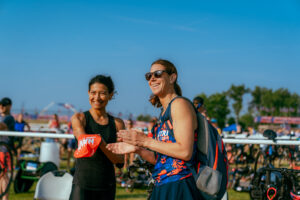 What are some of the biggest challenges you’ve encountered while pursuing your purpose, and how have you overcome them?
What are some of the biggest challenges you’ve encountered while pursuing your purpose, and how have you overcome them?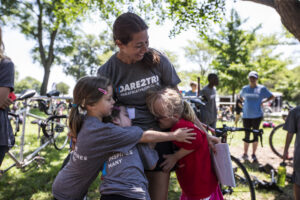 How do you define “Changemaker”? Can you explain what you mean or give an example?
How do you define “Changemaker”? Can you explain what you mean or give an example?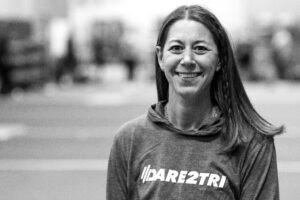 What advice would you give to someone looking to start their own journey as a changemaker within the social impact space?
What advice would you give to someone looking to start their own journey as a changemaker within the social impact space?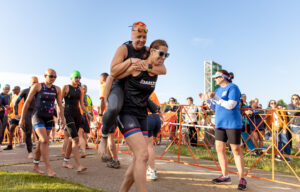 Can you tell us a story about a particular individual who was impacted or helped by your cause?
Can you tell us a story about a particular individual who was impacted or helped by your cause?